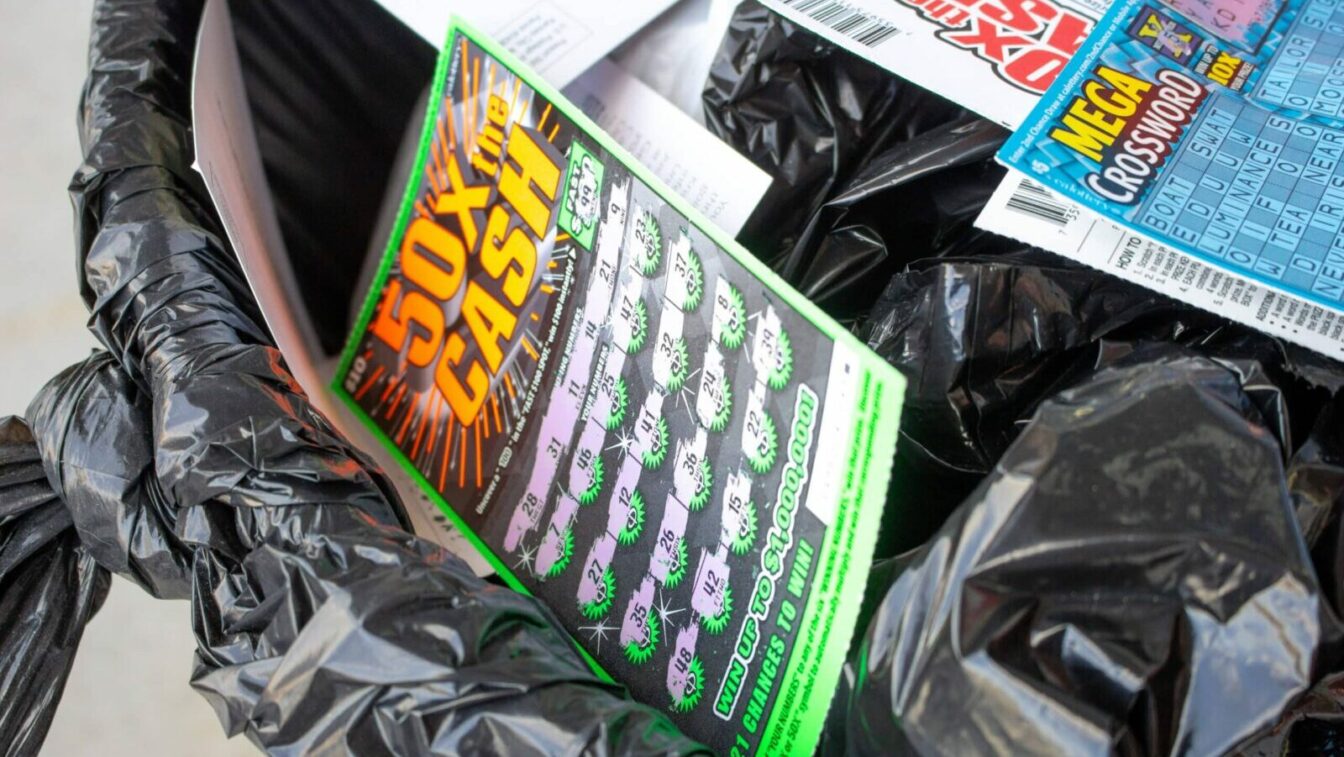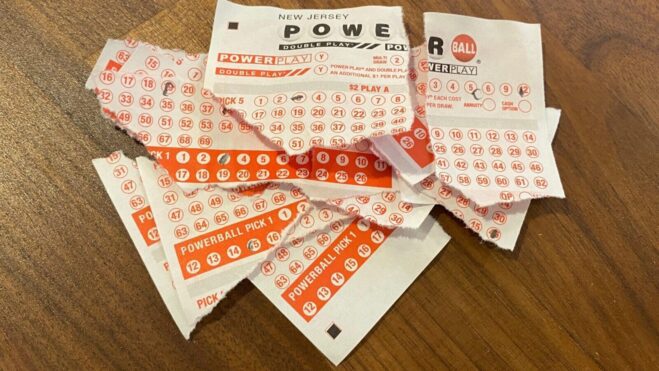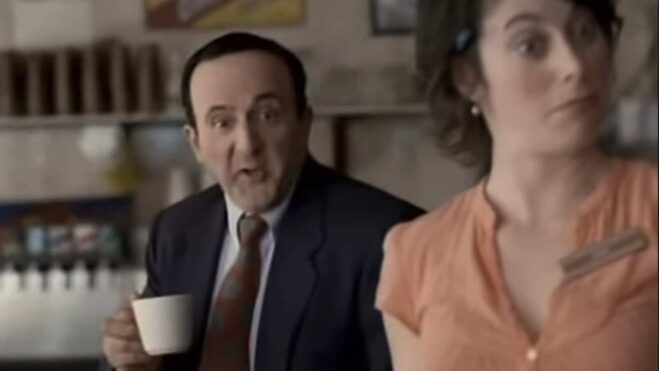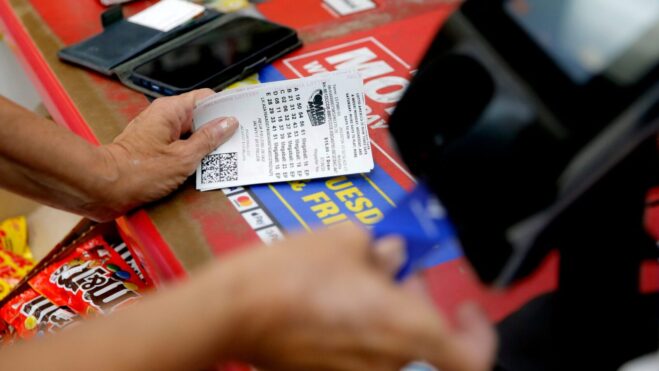Plot Points: ‘The Simpsons’ Parodies Myths And Realities Of The Lottery
The themes and stereotypes satirized in "Dog of Death" are so ingrained in lottery culture that they remain sharp and funny 32 years later.
4 min
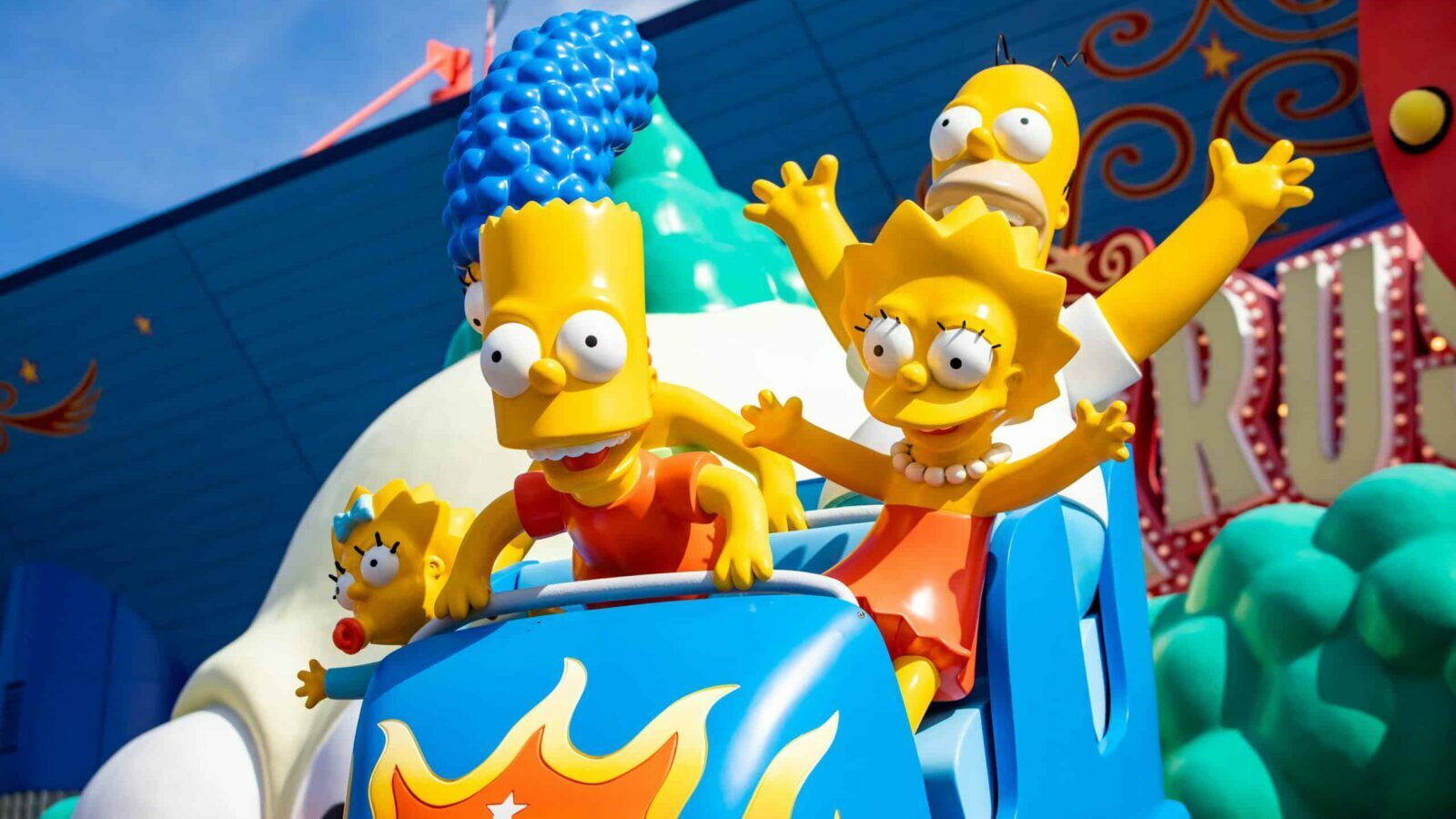
The state lottery is a secondary plot line in the classic, 1992 episode of The Simpsons titled “Dog of Death,” but the themes and stereotypes satirized by longtime Simpsons writer and producer John Swartzwelder are so ingrained in lottery culture and psychology that they remain as sharp and funny today as they were 32 years ago when the episode first aired.
The episode — the 19th of the third season — opens with a haymaker aimed at lottery TV ads that exaggerate the chances of winning a lottery, long a target of consumer groups critical of commissions misleading consumers.
A man in a suit bursts into his boss’s office: I don’t need your crummy job, Mr. employer! I won the lottery!
Boss: Who needs employees? I won the lottery too!
Two window washers descend on a scaffold into the background, bags of cash at their feet: We both won the lottery!
And then all four to the camera: Why don’t you win the lottery too?
Hey, you never know
Seconds later we get a parody of the memorable 1990s New York lottery ad campaign in which actor Ralph Buckley announced the current jackpot payout in a public place, causing a stampede of would-be millionaires.
Except here it’s Simpsons boozehound Barney Gumble who makes the announcement in Moe’s Tavern, which immediately spawns a typically disjointed exchange with Simpsons family patriarch and series star Homer:
Barney: You know, I heard the jackpot’s up to 130 million dollars.
Homer (spitting out a mouthful of Duff beer): Did you say 130 million dollars?!
Barney (grabbing Homer’s shirt and pulling him close): Did you say 130 million dollars?!
Homer: Yeah!
Barney: Wow!
Moments later hundreds of excited Springfieldians descend on the local Kwik-E-Mart to buy lottery tickets, creating the kind of buying frenzy that warms the hearts of lottery officials everywhere — the antithesis of lottery fatigue, a recent phenomenon borne of ever-larger payout amounts.
Upon arriving at the Kwik-E-Mart, Homer realizes he has no method of picking numbers, so he calls home to retrieve his kids’ birthdates and ages, which remains as reliable and popular a way to go as any when it comes to picking the magic combination. His shortcomings as a father are apparent when his son, Bart, answers the phone:
“Bart! I need some lucky numbers, fast. How old are you? (Scribbles on the payphone casing.) Uh-huh. And when’s your birthday? No kidding. (More scribbling.) And what’s Lisa’s birthday? What?! You don’t know your sister’s birthday?! What kind of brother are you?”
Later, as the Simpson family gathers around the television to watch the lottery drawing, he proclaims, “I have never been so sure of anything in my life: I am going to win this lottery.”
We attribute this kind of certainty in the face of almost impossible odds to “availability bias,” which psychologist types say occurs when people overestimate the frequency of an event by how easily it comes to mind — which might happen when a news station floods its broadcast area with stories about lottery payouts, past lottery winners, where to buy lottery tickets, etc. You can hardly blame Homer for his optimism. It’s out of his control.
Dreaming big
Naturally, Homer engages in some lottery fantasies, which have been around as long as lotteries themselves, and even if his are a bit extreme — he is giant, all-powerful, coated in 14-karat gold, and bejeweled — where would lotteries be if we didn’t fantasize now and again (and again) about what we’d do if we hit it big?
Inevitably, Homer’s numbers do not come out and in a twist no one saw coming at the time, the lottery is won by Kent Brockman, the news anchor reading the results. Though initially elated, he appears later in the episode in his new mansion — excessively tanned, obese, suspicious. He is likely miserable, parodying the popular theory that winning the lottery is ruinous. (Narrator: It is usually not.)
Bart (knocks on his door): Excuse me sir, I lost my dog.
Brockman: Uh-huh. And I suppose you want me to buy you a new one? You know, ever since I won the lottery, everyone wants a piece of Kent Brockman. Homeless this and hungry that.
Bart: Gee. I’m sorry, mister.
Brockman’s butler: Sir, your llama just bit Ted Kennedy.
Brockman: Good!
Serious FOMO
Later, another popular bit of lottery psychology is mined when Marge, Homer’s long-suffering wife, reveals that the numbers she’d been playing every week for years finally came out — the one week she didn’t buy tickets. This plays on the fear of many longtime, habitual players who play the same numbers every week that those numbers are destined to hit on the one week those numbers aren’t played — even though playing the same numbers does not increase one’s chance of winning.
Finally, and most pointedly, the episode takes aim at the lottery’s lone, ostensible moral good: the money it generates for the public school system. (On average, public beneficiaries receive about 24% of lottery proceeds.) Even that has been called into question, as some reports indicate that the more lotteries fund schools, the more states cut education budgets because they know that lottery money is coming.
The Simpsons’ hapless grammar school principal, Seymour Skinner, has big plans for his school’s lottery runoff; they include “a state-of-the-art detention hall where children are held in place by magnets.”
You can imagine his reaction when, during a televised award ceremony, a lottery official presents him with a “brand new eraser!”
Skinner: “One eraser? Oh, I’m used to my government betraying me. I was in Nam! I served for three … ” The feed is cut and the camera returns to Brockman, who reveals the winning numbers for “this week’s $40,000, smirk, jackpot” (again, lottery fatigue).
Several more lottery-themed episodes of The Simpsons aired over the years, but none approaches the wisdom and sharp critique of the original. That The Simpsons is one of the longest-running TV shows in American history (and the longest running animated comedy by far), at 34 seasons and counting, is a testament to its writers’ ability to find what’s interesting in our culture and parody it such that we are forced to see it with new eyes.
The lottery evolves and changes in bits and pieces; games of chance come and go, but at its center it remains a nonmalleable study in human nature, which is why, after 32 years, “Dog of Death” still hits the mark. (Most of the lottery-themed scenes from “Dog of Death” can be viewed here.)

